My series about angels in medieval culture will be on hold this week as we turn our attention to sickness and suffering in the Middle Ages. I was stricken by illness a few days ago and felt quite miserable—hence the topic (hence also the absence of an installment for The Medieval Year on Friday: I was on sick leave).
“Two thousand pharmacologists and bio-chemists were subsidized in A.P. 178.”
“Six years later it was being produced commercially. The perfect drug.”
“Euphoric, narcotic, pleasantly hallucinant.”
“All the advantages of Christianity and alcohol; none of their defects.”
The basic premise of Aldous Huxley’s Brave New World—the most chilling of all dystopian novels, because the most plausible—is that conquering the entire world is easy. All you need to do is create something that will eliminate physical and psychological pain, and then offer it to people in exchange for their freedom.
The lines above refer to soma, Huxley’s “perfect drug” and the key to peacefully subjugating the human race. When one reads Brave New World while feeling hearty and hale, it’s easy to spurn soma and pity the blasé hedonists whom it has enslaved. But a few days ago I was not so hearty and hale. In fact I was extremely sick: submerged in pains of body and mind, haunted by feverish anxieties, despairing once again of suffering piously and nobly as so many of the saints reportedly did. Perhaps I was able to recall a few words of the Psalmist—
I am made wretched, utterly bent,
all the day in sorrow I walk,
deep in my flesh there is a burning—but the pain continued all the same. The minutes crawl by, the hours crawl by, the future is bleak, the soul is dazed, the body has failed.
And what if I had a bottle of soma at my bedside?
Easily obtained, “FDA approved,” socially acceptable, no harmful side effects to speak of. Would I have the strength to spurn it? Or would I make the deal that built the brave new world? Would I trade “health”—the illusion of health, that is, what doctors call analgesia, the absence of pain—for freedom?
It’s a high-stakes question that I don’t want to answer and fortunately don’t have to, because soma doesn’t exist and I don’t think it ever will. Real-world analgesic drugs are in a totally different category for me—I don’t believe that they will actually make me feel much better, and I don’t want them anyway because I fear their side effects. However, we must also recognize that the age of soma is not so distant as it used to be. More so than a hundred, fifty, even twenty years ago, the precursors of soma—whether in chemical or technological form—are making their presence known in human society.
And that, my friends, is why we must be careful when reading Brave New World. That is why we must see into the heart of the ruinous deal that Huxley’s dystopian world has made. Is it really about freedom? Is that really the crux of the matter? Does the book not show us in grisly detail that by abolishing pain the inhabitants of this new and nightmarish world lost not only their traditions, not only their dignity and individuality, not only their freedom—but their very humanity?
I believe that appendicitis is considered one of the most painful physiological conditions that might befall an ordinary person. Something that makes my life “special” is that I experienced this condition many times over the course of about twelve years—thanks to repeated misdiagnosis and what apparently was a preternaturally resilient appendix. This was a physical and psychological torture that is difficult to describe. It did, however, afford me much opportunity to reflect on the nature of pain and its role in the human experience.
I took these reflections with me when I moved to a remote agricultural village in eastern Europe. This was my “practicum” in medieval studies. Unforgettable on every level, transformative, enlightening, puzzling, terrifying, joyful, profound, tragic, traumatic—the village has become a phantasmagoric synthesis of human life that, together with Shakespeare’s plays and the stories of the Bible, is never quite absent from my psyche.
What is the essence of “medieval” existence? Let’s forget that the word refers to historical chronology and just think about the fundamental qualities of life as medieval people lived it. If we distill it—this is an oversimplification, I know, but a useful one—if we distill it as much as possible, I think we can say that medieval life was the first child born from the marriage of Christianity and primitive agrarian culture.
And that’s why I was able to experience “medieval” life in a twenty-first-century village. I don’t deny that the coexistence of old and new was dizzying at times—one minute you’re typing on a wirelessly connected laptop, the next minute you’re on your way to draw water from the well; someone gives you a ride to town in a sleek new sedan, and while walking home you pass through a meadow where a middle-aged man is mowing hay with a scythe. But I discovered that one does not wholly negate the other. In the village there was technology, there was machinery, there was modern ideology. But there was also Christianity and agrarian culture—an intensely, stubbornly, timelessly agrarian culture. Thus, I found the medieval spirit there, even if it was a shadowy and dissonant version of its former self. And right along with it I found pain, a great deal of it, but its visage was strange and new. And along with the pain I found humanity—a very great deal of it. And its visage was strange, and somehow new.
Soon after I had arrived in the village, I came across a funeral procession. I can remember black banners and maybe some singing; the rest is a blur. When I had an opportunity to ask the priest about it, I learned that it was an infant, maybe a few months old, who had died. There was a grave impassivity in his face, a steadiness in his voice, all was some species of stern tranquility—it was foreign to me. I grew up in a place where three-month-old babies didn’t die, or if they did, people didn’t talk about them like that, and they certainly didn’t mourn them in ritualized processions down main street. I inquired about the cause of death, and got one word in reply: Bolnav. “Sick.” And that’s all he had to say about that.
Months later, I was chatting with the woman who walked to my house every day with a bottle of fresh milk from her cow. She was about fifty, maybe fifty-five, maybe even sixty. Her hair was completely gray but still long, and rarely have I seen a face that looked so exhausted and so vibrant at the same time. We got to talking about hardships; I don’t remember much of the conversation, but I’ve never forgotten her concluding statement: E greu a trăi. “It’s hard to live.”
I had often heard people from my culture say “life’s hard,” but what she said hit me with a completely different force. The primal eloquence of her words and the piercing resignation in her voice were part of the effect. So was the context: “life’s hard” was the sort of thing that people said while working late at the office before driving in an expensive car to a five-bedroom house. The lady who brought me milk was a widow; her husband died alone, in the forest, while felling a tree. She was lonely; her daughter left the village to work in the city. She was poor; her two-room house shared a wall with her barn. And she was tired, for she worked with her hands, and ate her bread in the sweat of her face. It’s hard to live.
These are representative examples. Much more could be shared, but I cannot hope to convey, in a short essay like this, the complex mysteries of sickness and suffering that life in the village engraved in my heart. And I haven’t yet articulated the central theme that I am working toward; it will have to wait until Tuesday’s post. I will close today by trying to express the sensation of living amidst pain in a very modern medieval village, and the lesson that these memories now teach me. First the sensation: Pain was like water in which I was submerged—except that I could breathe the water. And the lesson: Human beings can flee from pain only so much before they end up fleeing from themselves.


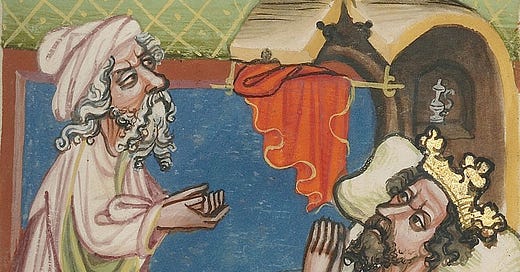


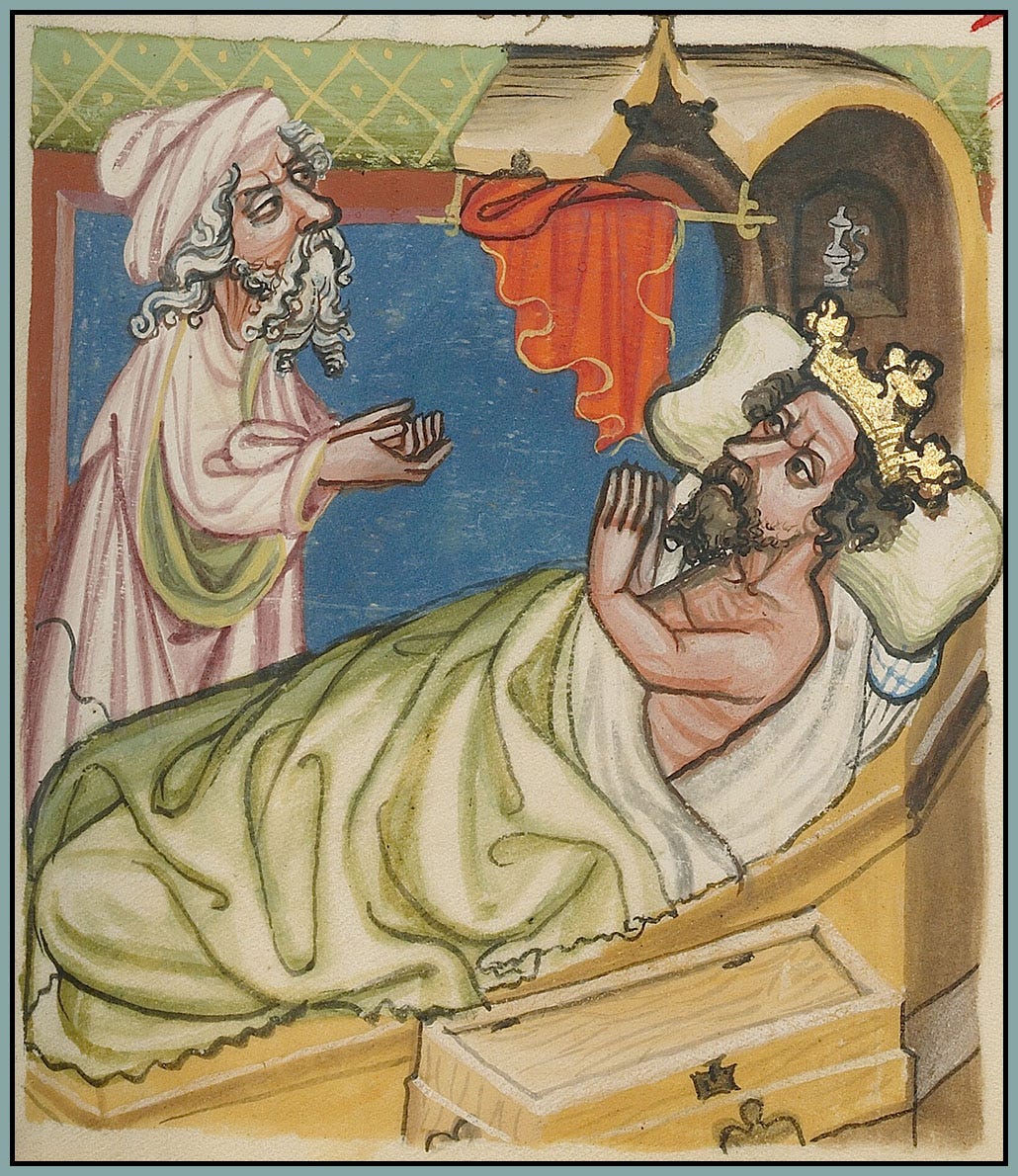
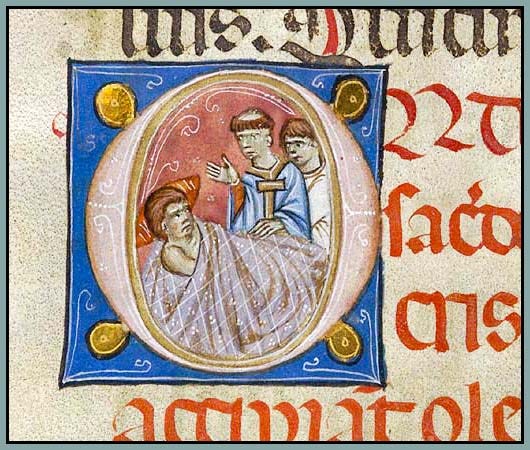
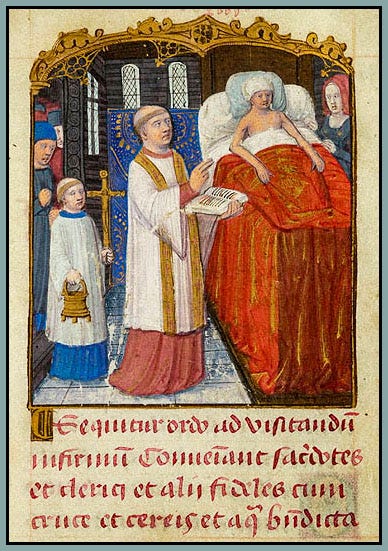

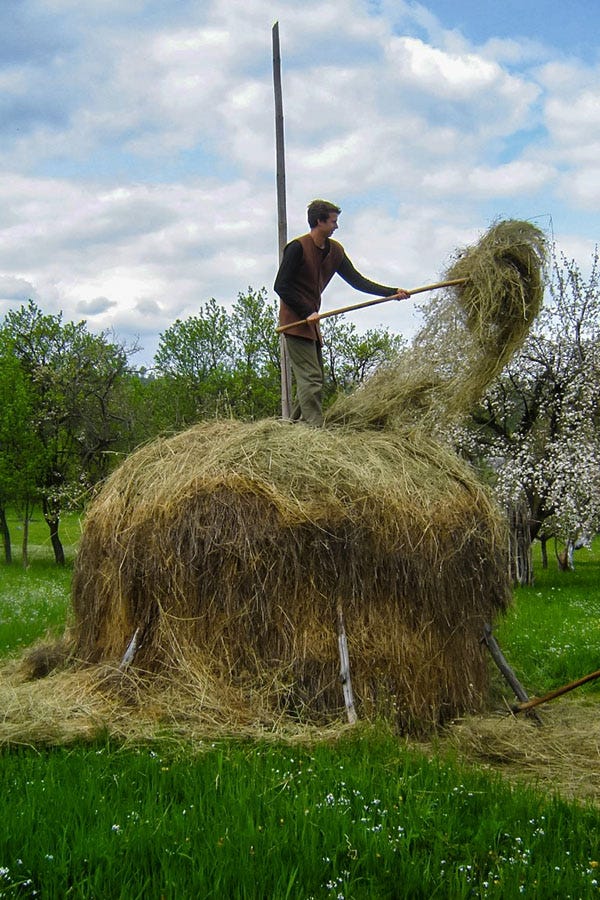
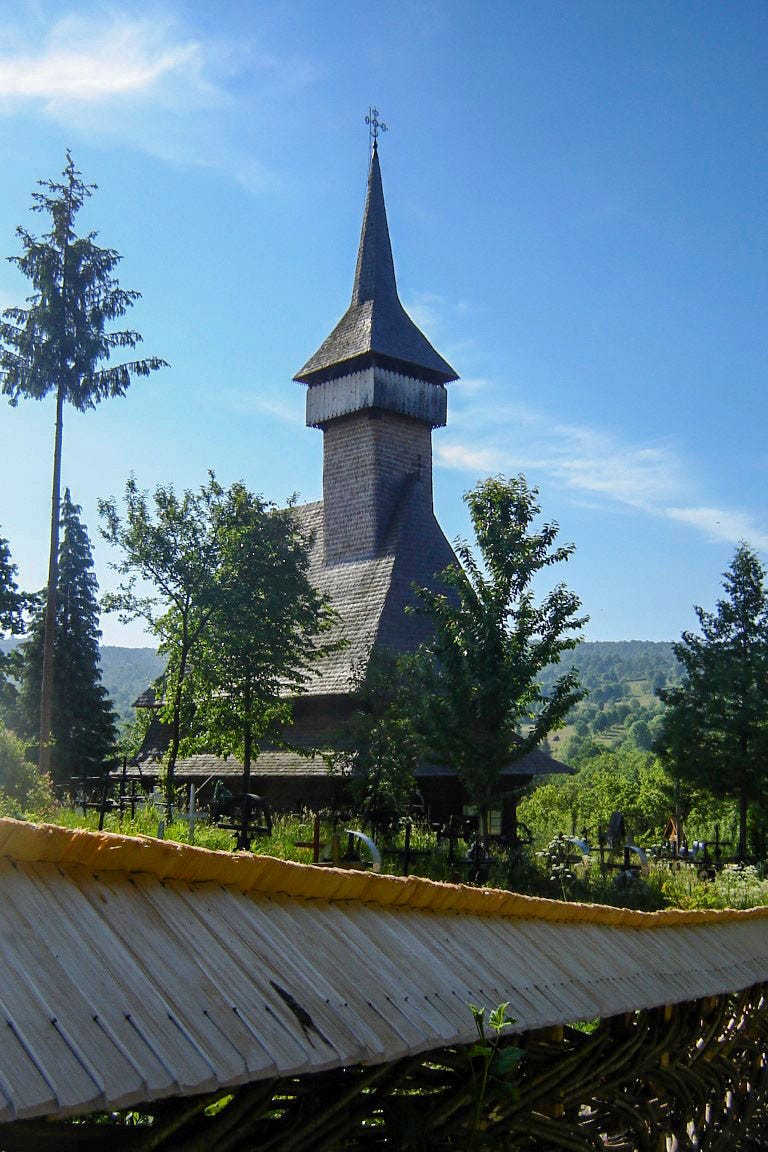

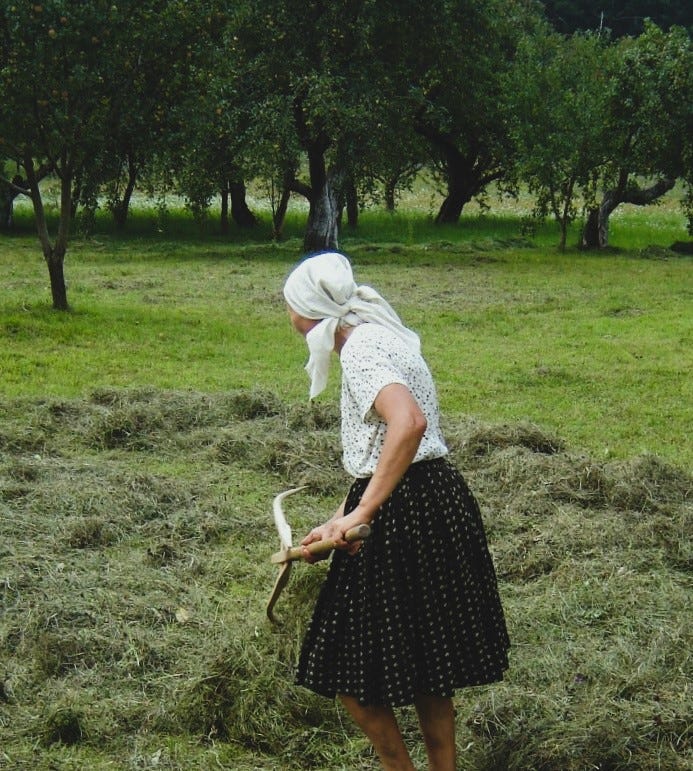
profoundly written and beautiful ! As a widow myself who has undergone extreme mental and emotional pain, this really touched me. Thank you.
Interesting thoughts here, which resonate with me. I grow my own fruits and vegetables and this year's disastrous weather impacting production reminded me of the precariousness of human life, which we no longer perceive in our societies. Famine is never far from abundance, pain in growing plants or animals is a constant (my aching back from last week's digging); the emergence of my garlic from the ground this week pointing towards next year while the fallen leaves covering the ground remind me of the death of this year. The constant cycle of birth, growth, suffering and death in agrarian communities are synchronous with the Christian cycle. But our distance from this former medieval life masks these key elements so we view suffering as something to be avoided, negated, hushed. One thing I have learned is that suffering is an essential part of our humanity. I'm looking forward to your next post!